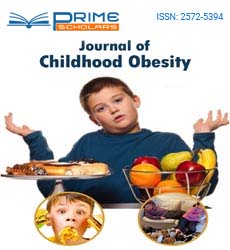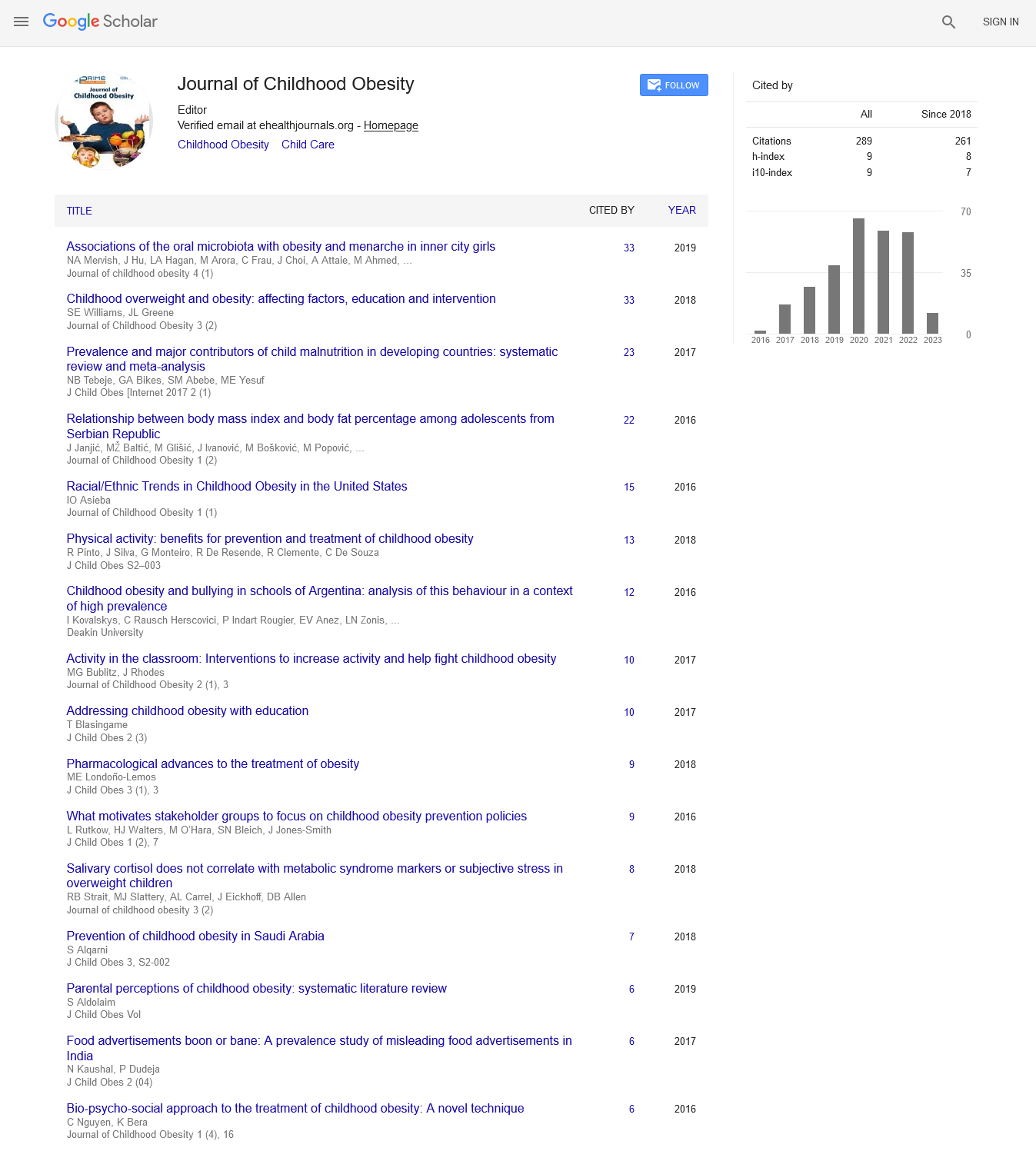Commentary - (2023) Volume 8, Issue 4
The Link between Nutrient Deficiency in Children and Childhood Obesity
Ann Brown*
Department of Nutrition, University of Washington, United States
*Correspondence:
Ann Brown,
Department of Nutrition, University of Washington,
United States,
Email:
Received: 01-Aug-2023, Manuscript No. ipjco-23-17784;
Editor assigned: 03-Aug-2023, Pre QC No. ipjco-23-17784 (PQ);
Reviewed: 17-Aug-2023, QC No. ipjco-23-17784;
Revised: 22-Aug-2023, Manuscript No. ipjco-23-17784 (R);
Published:
29-Aug-2023, DOI: 10.21767/2572-5394-23.8.42
Description
Childhood obesity is a serious and growing health concern
around the world. While many factors contribute to the rising
rates of obesity in children, one often overlooked aspect
is the connection between nutrient deficiency and obesity. In
this article, we will explore the relationship between poor nutrition
and childhood obesity, highlighting the importance of
addressing nutrient deficiencies to prevent and combat this
health issue. Childhood obesity is characterized by an excess
accumulation of body fat in children and adolescents. It is typically
assessed using the Body Mass Index (BMI) percentile for
a child’s age and sex. A BMI at or above the 95th percentile is
considered obese. Obesity during childhood can lead to various
health problems, including type 2 diabetes, high blood pressure,
cardiovascular disease, and mental health issues. Nutrition
plays a pivotal role in the development of childhood obesity.
When children do not receive the proper nutrients their
bodies need, they are more likely to consume excess calories
and develop unhealthy eating habits. Here are some key ways
in which poor nutrition can contribute to childhood obesity Diets
rich in energy-dense, nutrient-poor foods, such as sugary
snacks, fast food, and processed foods, can lead to excessive
calorie consumption while providing little nutritional value.
Children experiencing nutrient deficiencies may feel hungry
more often, leading to overeating and the consumption of calorie-
rich foods. Inadequate intake of essential nutrients, such as
vitamins and minerals, can disrupt metabolic processes, making
it easier for the body to store excess fat. Poor nutrition can
disrupt hormonal balance, including hormones that regulate
appetite and metabolism. This can lead to increased hunger
and reduced feelings of fullness. Children who lack essential
nutrients may have reduced energy levels and motivation for
physical activity, contributing to a sedentary lifestyle. Several
specific nutrient deficiencies have been associated with an increased
risk of childhood obesity Low levels of vitamin D have
been linked to increased body fat and a higher risk of obesity.
Vitamin D plays a role in regulating appetite and fat storage.
Iron deficiency can lead to fatigue and reduced physical activity,
potentially contributing to weight gain. Anemia, a condition
often caused by iron deficiency, can affect energy levels.
Inadequate calcium intake may result in lower levels of calcium
stored in fat cells. This can trigger fat cells to release more
fat, potentially leading to obesity. Diets lacking in dietary fiber
can result in increased calorie consumption and a higher risk of
obesity. Fiber helps control appetite and stabilize blood sugar
levels. Insufficient intake of omega-3 fatty acids may contribute
to obesity. These essential fats play a role in reducing inflammation
and regulating appetite. Preventing nutrient deficiency
is crucial for maintaining a healthy weight in children. Here are
some strategies to ensure children receive essential nutrients:
Provide children with a balanced diet rich in fruits, vegetables,
whole grains, lean proteins, and dairy products. Encourage a
variety of nutrient-dense foods. Minimize the consumption
of processed foods, sugary snacks, and fast food. These often
contain empty calories and lack essential nutrients. Establish a
regular meal schedule to prevent excessive snacking and encourage
healthy eating patterns. Teach children about the importance
of nutrition and making healthy food choices. Involve
them in meal planning and preparation. Consult a healthcare
provider if a child is at risk of nutrient deficiencies. In some cases,
supplements may be necessary. Promote regular physical
activity to support overall health and well-being.
Acknowledgement
None.
Conflict Of Interest
The author declares there is no conflict of interest in publishing
this article.
Citation: Brown A (2023) The Link between Nutrient Deficiency in Children and Childhood Obesity. J Child Obesity. 8:42
Copyright: © 2023 Brown A. This is an open-access article distributed under the terms of the Creative Commons Attribution License, which permits unrestricted use, distribution, and reproduction in any medium, provided the original author and source are credited.

